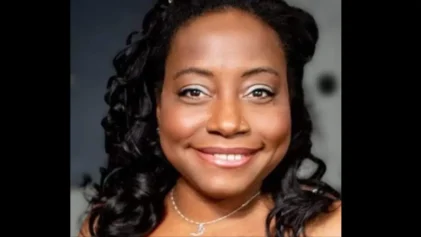A Staten Island, New York, man has been granted a new hearing, a state Appellate Division panel announced on July 14. Wesley Brissett, 34, was convicted five years ago of criminal possession of stolen property in the fifth degree under Richmond County Supreme Court Justice William E. Garnett.
But an appeals panel ordered that Brissett receive a new hearing under a new judge last week, and noted in court documents that Garnett complained that there was no need to bring up “this Black thing” when Brissett’s defense attorney questioned why three of the six potential Black jurors were dismissed following prosecutors’ exercise of peremptory challenges toward them.

According to court documents, after Brissett was arrested for allegedly entering a Staten Island home and stealing several items from it, prosecutors exercised peremptory challenges to “exclude three Black prospective jurors” during the selection process without giving reasons for it.
One potential juror was eliminated before she were questioned by the defense or prosecution, and another was excluded because prosecutors felt he “was a little vague with his responses as to the family members that he had as far as incarcerated and was kind of vague as far as it will play a role in his decision making here,” despite the fact that the juror stated his relationship to family members who had been incarcerated would not influence his judgment.
During the final round of jury selection, the prosecutor exercised a peremptory challenge against the only Black prospective juror on the panel, and defense attorney John Poppe, Brissett’s public defender, wanted to know if race was the reason for the dismissal of the potential juror who “indicated that his brother was a recently retired New York City Police Department Special Victims Division detective, and that [the potential juror] had experienced an attempted burglary.”
Garnett remarked, “I am getting a little annoyed. … This is not the Bronx,” and noted that only 50 percent of the potential Black jurors in the pool had been challenged, saying, there “was no reason for starting this Black thing.”
Garnett also claimed the number of times Poppe tried to knock off female whites” from the jury panel was “almost staggering.”
Prosecutor Michael Tannousis took this cue, asking Garnett to look into “why so many female white jurors have been knocked off the jury.” Poppe, who had excluded nine white women from the jury, noted that prosecutors had also removed seven, and that the jury pool as a whole had been comprised overwhelmingly of white women.
Although not all potential Black jurors in the pool were challenged, the appeals panel noted that “the prosecutor exercised peremptory challenges to the only Black prospective juror in each of the second and third rounds.”
The panel found that it had successfully been demonstrated that discrimination played a role in the jury selection process and ordered that Brissett be granted a new hearing to determine the validity Bissett’s claim under a new justice.
Staten Island DA Michael McMahon said in a statement to the New York Daily News that no discrimination had taken place during the selection process.
“We believe that no discriminatory conduct occurred by prosecutors during jury selection, and we welcome the opportunity to address these issues when the case is returned for further proceedings before another judge,” he said.


